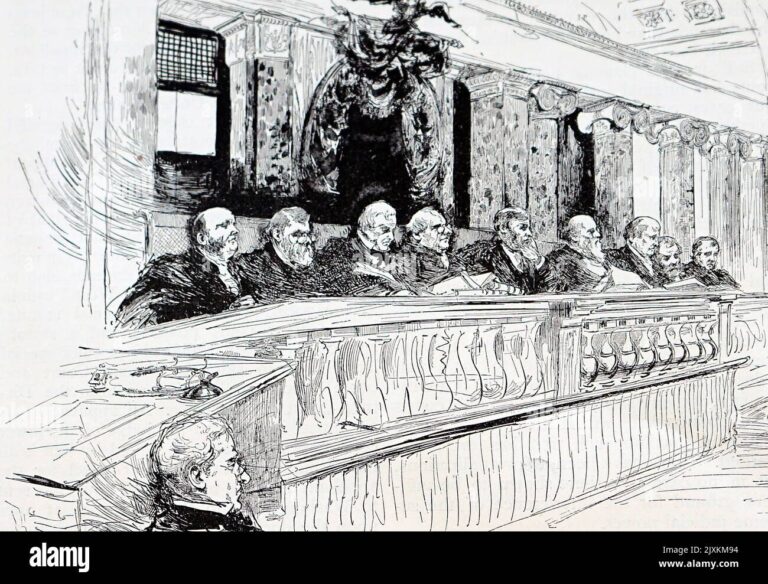On October 23, 2023, the United States Supreme Court declined to hear an appeal from Devon Archer, a former business partner of Hunter Biden, regarding his criminal conviction for conspiracy to commit securities fraud and wire fraud. Archer’s case has garnered significant attention, primarily due to his connections to President Joe Biden’s son and the political implications surrounding their business dealings.
What are the implications of the Supreme Court’s decision on Devon Archer?
The Supreme Court’s refusal to hear Archer’s case means that his conviction will stand, which has implications for both Archer and the ongoing scrutiny of Hunter Biden’s business dealings. Archer’s legal team argued that the conviction was based on flawed jury instructions and insufficient evidence. However, the decision underscores the complexity of the case amid ongoing political discussions regarding ethics and business relationships in the Biden family.
Background on Devon Archer and His Conviction
Devon Archer, a former investment banker, was convicted in 2018 along with others for engaging in a fraudulent scheme involving the sale of interests in a Native American tribal bond. Investigators uncovered that Archer and his co-conspirators misled investors about the use of funds, resulting in a loss of millions of dollars. His ties to Hunter Biden emerged during the investigation, particularly through their joint involvement in the now-defunct investment firm, Rosemont Seneca Partners.
Key Facts about the Case
Here are some essential details surrounding Archer’s conviction:
| Detail | Information |
|---|---|
| Conviction Year | 2018 |
| Charges | Conspiracy to commit securities fraud and wire fraud |
| Sentence | Over 5 years in prison |
| Appeal Year | 2023 |
| Supreme Court Decision Date | October 23, 2023 |
The Political Context
Archer’s connection to Hunter Biden has fueled partisan debates. Critics of the Biden administration have used Archer’s case to question Hunter Biden’s business dealings, suggesting that they reflect a broader pattern of ethical violations among public officials. Conversely, supporters of the President argue that the investigations into Hunter Biden are politically motivated attempts to tarnish the administration’s reputation.
Hunter Biden’s Business Ventures
Hunter Biden has faced scrutiny for various business ventures, most notably his role in Burisma, a Ukrainian natural gas company. His involvement sparked debates over whether he leveraged his family name to secure lucrative positions. While Hunter has denied any wrongdoing, investigations into his activities have continued to raise questions.
The Legal Landscape
Archer’s appeal journey highlights the complexities of the U.S. judicial system. His arguments centered on claims of judicial error, specifically arguing that the jury did not receive adequate guidance on how to interpret the law surrounding securities fraud. Critics suggest that the outcome of his appeal could set a precedent for similar cases involving business fraud and political connections.
The Decision’s Potential Impact
Archer’s case is not merely a legal issue; it intertwines with political narratives and public perceptions of ethics in governance. The Supreme Court’s decision not to engage with Archer’s appeal signals a potential for increased scrutiny of business dealings linked to public figures. This case, coupled with ongoing investigations into Hunter Biden, may have lasting implications for the Biden administration.
Public Reactions and Future Implications
The decision by the Supreme Court to reject Archer’s appeal has drawn varying responses across the political spectrum. Some view it as a reaffirmation of judicial integrity, while others criticize it as an embodiment of systemic issues within the legal system.
Key Public Responses
| Response | Details |
|---|---|
| Political Commentators | Divided opinions on the implications for Biden’s presidency |
| Legal Experts | Some defend the Supreme Court’s choice not to intervene |
| Public Opinion | Mixed feelings, with ongoing debates about ethics in politics |
Conclusion
The Supreme Court’s rejection of Devon Archer’s appeal serves as a critical moment in a complex narrative involving personal relationships, business practices, and political implications. As Archer’s conviction stands, the focus may shift towards broader discussions about accountability for public figures and the potential consequences of their business undertakings. The ongoing scrutiny of Hunter Biden and his associates continues to shape perceptions of the administration, likely influencing political dialogue in the upcoming years.
As investigations persist and the political landscape evolves, American voters will likely remain attentive to the ethical considerations surrounding those in power. The interplay of law, business, and political ethics will continue to be a defining feature of the Biden administration’s legacy.
